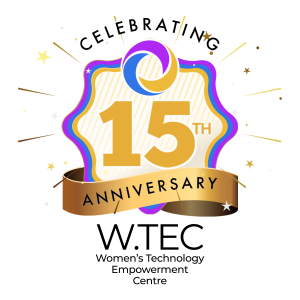Last October, I had the opportunity to attend the annual general meeting of the organisation ICANN – popularly tagged ICANN63.
ICANN – or the Internet Corporation of Assigned Names and Numbers – is a global nonprofit organisation established in 1998 and dedicated to keeping the Internet secure, stable and interoperable. ICANN, through its multi-stakeholder system, develops policy on the Internet’s unique identifiers.

At the core of ICANN’s work is the domain name system, or DNS, which helps coordinate how computers on the Internet find each other. Computers typically connect to each other using IP addresses, which are a series of numbers correlating to very device connected to the Internet. The DNS links letters – which are easier for people to remember – to the IP addresses.
You can think of it as a phone book or yellow pages for the Internet, which keeps a directory of domain names and translate them to Internet Protocol (IP) addresses.
ICANN meetings are held three times each year in different continents, to enable attendees from all over the world to participate in person. I attended the annual general meeting, held in Barcelona, Spain, during which the new Board members took their seats. It also doubled as a celebration of ICANN’s 20th anniversary.
ICANN’s multi-stakeholder way of working is an important way of fulfilling its mission, because it gives the opportunity to people from different sectors and regions contribute to the policies developed by ICANN. When you think that most of the world uses or is affected by the Internet, then you can imagine the importance of its work.
I belong to the Not-for-Profit Operational Concerns Constituency (NPOC), which is the home for Not-for-Profit organizations like NGOs, wishing to have a voice in internet governance. NPOC focuses on the impact of DNS policies and their effects on the operational readiness and implementation of non-commercial missions and objectives. Such not-for-profit and non-governmental organizational perspectives on operational concerns include:
- Transparent domain name registration
- Privacy
- Cybersecurity
- DNS fraud and abuse
- Intellectual property abuse
- Using the DNS to provide and collect information and serve their members and communities.
As a member of NPOC’s executive committee, I had a busy time working with the rest of my team on pressing issues for our constituency, including revising our Charter (which sets guidelines in place that guide all our operations), discussing our outreach and publicity plans for 2018/19, mapping out our plan for policy contributions.

It was an enlightening meeting for me, because although I had been aware of ICANN for a long time, I was only starting to develop an appreciation for what it does and the relevance to W.TEC’s work. W.TEC works to get more girls and women using using and working in science and technology and a key aspect of our work is getting women and girls online and learning to use this resource safely and effectively.
Without ICANN’s mission to ensure that the Internet is secure and stable, we would not be able to do our work.
It’s exciting to have the opportunity to be part of an organisation whose work directly affects millions of people around the world. I have to say that, despite my years of work in technology and on the digital divide, participating in ICANN was a whole new learning curve for me – from understanding the many and varied components that make-up this multi-stakeholder model, understanding the scores of ICANN acronyms, to the technical concepts that were new to me and grasping the various policies in different stages of development.

I am still learning and suspect that I will be for as long as I am a member of the ICANN community. I believe it was Pablo Picasso who said: “I am always doing that which I cannot do, in order that I may learn how to do it.” I couldn’t have summed-up my ICANN experience any better.

